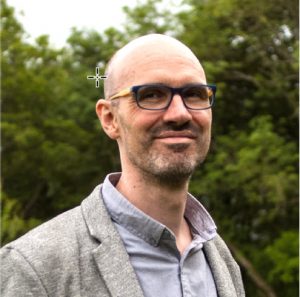Free sessions from Fast Track Impact on preparing for REF2029, scoping an ethics of engagement and impact, integrating impact into your next funding bid and influencing policy. Book soon as some of these events only have a few spaces left.
Preparing for REF2029
Date: 5 February, 2024
Time: 10:00 – 13:00
This session will help you monitor, evaluate and evidence your impact.
Key benefits:
- Learn about evidence-based principles for delivering research impact when you don’t have much time
- Discover easy and quick-to-use templates you can use immediately to:
- Prioritise who to engage with first
- Create a powerful impact plan that will guarantee your research makes a difference without wasting your time
- Learn how to monitor, evaluate and evidence impact convincingly in your case study
- Discover easy and quick-to-use tools to fix problems with significance or reach in case studies
- Find out what makes a 4* impact case study, based on research into high versus low-scoring cases in REF2014 and a worked example showing the anatomy of a 4* claim from REF2021
- Discuss impact plans that might develop into REF2028 case studies with colleagues
Scoping an ethics of engagement and impact
Date: 26 February, 2024
Time: 13:00 – 14:00
- As governments and funders around the world invest in the impact of research as an unquestioned good, there are growing concerns around the ethics of pursuing impact.
- Should University ethics committees consider engagement and impact plans for projects that are working on controversial topics or with vulnerable groups – even if their research doesn’t involve human subjects and so would not normally fall under their jurisdiction?
- How should researchers and their institutions manage issues such as:
- Undeclared conflicts of interest (e.g., arising from funding and promotion outcomes from the Research Excellence Framework in the UK)
- Positive bias in the presentation of impacts (e.g. research leading to economic impacts via questionable ethical practices that also led to significant harm to the environment or human rights), and
- Concerns about how vulnerable individuals and groups have been used to generate or corroborate impacts?
Integrating impact into your next funding bid
Date: 20 May, 2024
Time: 10:00 – 12:00
Learn how to increase your success rates and integrate impact into your next research proposal
Key benefits:
- Discuss insider tips and tricks, and get bid writing tools to help you co-produce your next proposal with the people most likely to benefit from your research.
- Discuss examples of impact sections from real cases for support
- Learn how to integrate impact convincingly with your proposal, using a mapping approach to ensure your impact goals map onto your impact problem statement, beneficiaries and impact generation activities, whilst managing risks and assumptions.
- Power all of this with a systematic stakeholder analysis and impact logic model that will make it easy to articulate specific and credible impacts.
Free training: Influencing policy
Date: 2 September, 2024
Time: 10:00 – 13:00
This session is based on research by Prof Reed and the latest evidence on how to get research evidence into policy.
Key benefits:
- Discover quick and easy tools you can use immediately to:
- Prioritise which policy actors to engage with first and how to instantly get their attention
- Create a powerful impact plan that will guarantee your research makes a difference without wasting your time
- Discuss how to design an effective policy brief, infographic or presentation
- Learn how to get your research into policy, wherever you work in the world, by building trust and working with intermediaries
- Be inspired by primary research and case studies
Free training: The Productive Researcher
Date: 2 December, 2024
Time: 10:00 – 13:00
Find out how you can become significantly more productive as a researcher in a fraction of your current working day.
Key benefits:
- Leave with practical tools you can use immediately to prioritise limited time to achieve more ambitious career goals
- Gain a deeper understanding of the values that underpin your work, and the reasons why you feel time pressured
- Identify priorities that are as much about being as they are about doing, and that are stretching, motivational, authentic, relational and tailored to your unique strengths and abilities
- Turn these into an “experiment” to make practical changes that create a positive feedback loop between your priorities and your motivation, so you can become increasingly focussed and productive












 Exploring Embodied Research: Body Map Storytelling Workshop & Research Seminar
Exploring Embodied Research: Body Map Storytelling Workshop & Research Seminar Marking a Milestone: The Swash Channel Wreck Book Launch
Marking a Milestone: The Swash Channel Wreck Book Launch No access to BRIAN 5-6th February
No access to BRIAN 5-6th February ECR Funding Open Call: Research Culture & Community Grant – Application Deadline Friday 12 December
ECR Funding Open Call: Research Culture & Community Grant – Application Deadline Friday 12 December MSCA Postdoctoral Fellowships 2025 Call
MSCA Postdoctoral Fellowships 2025 Call ERC Advanced Grant 2025 Webinar
ERC Advanced Grant 2025 Webinar Update on UKRO services
Update on UKRO services European research project exploring use of ‘virtual twins’ to better manage metabolic associated fatty liver disease
European research project exploring use of ‘virtual twins’ to better manage metabolic associated fatty liver disease